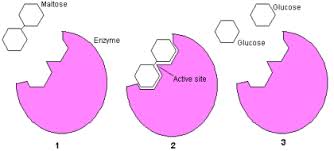enzyme
英 ['enzaɪm]
美 ['ɛnzaɪm]
TEM4 IELTS GRE TOEFL
enzyme 酶en-, 进入,使。-zym, 发酵,词源同eczema, zymurgy.
- enzyme (n.)
- 1881, as a biochemical term, from German Enzym, coined 1878 by German physiologist Wilhelm Kühne (1837-1900), from Modern Greek enzymos "leavened," from en "in" (see en- (2)) + zyme "leaven" (see zymurgy). Related: Enzymotic.
- 1. Tampering with a single enzyme can lead to untoward effects elsewhere.
- 破坏一种酶可能会导致在别处出现异常。
来自柯林斯例句
- 2. This enzyme would make the filtration of beer easier.
- 这种酶会使啤酒更容易过滤。
来自柯林斯例句
- 3. This change is considered to be due to denaturation of the enzyme.
- 据认为这种变化是由于酶的变性作用造成的.
来自辞典例句
- 4. Removal of the inducer results in immidiate cessation of enzyme synthesis.
- 除去诱导物就会立即终止酶的合成.
来自辞典例句
- 5. Above a certain temperature, the enzyme molecule will become unfolded.
- 超过一定温度, 酶分子将会展开.
来自辞典例句
[ enzyme 造句 ]
